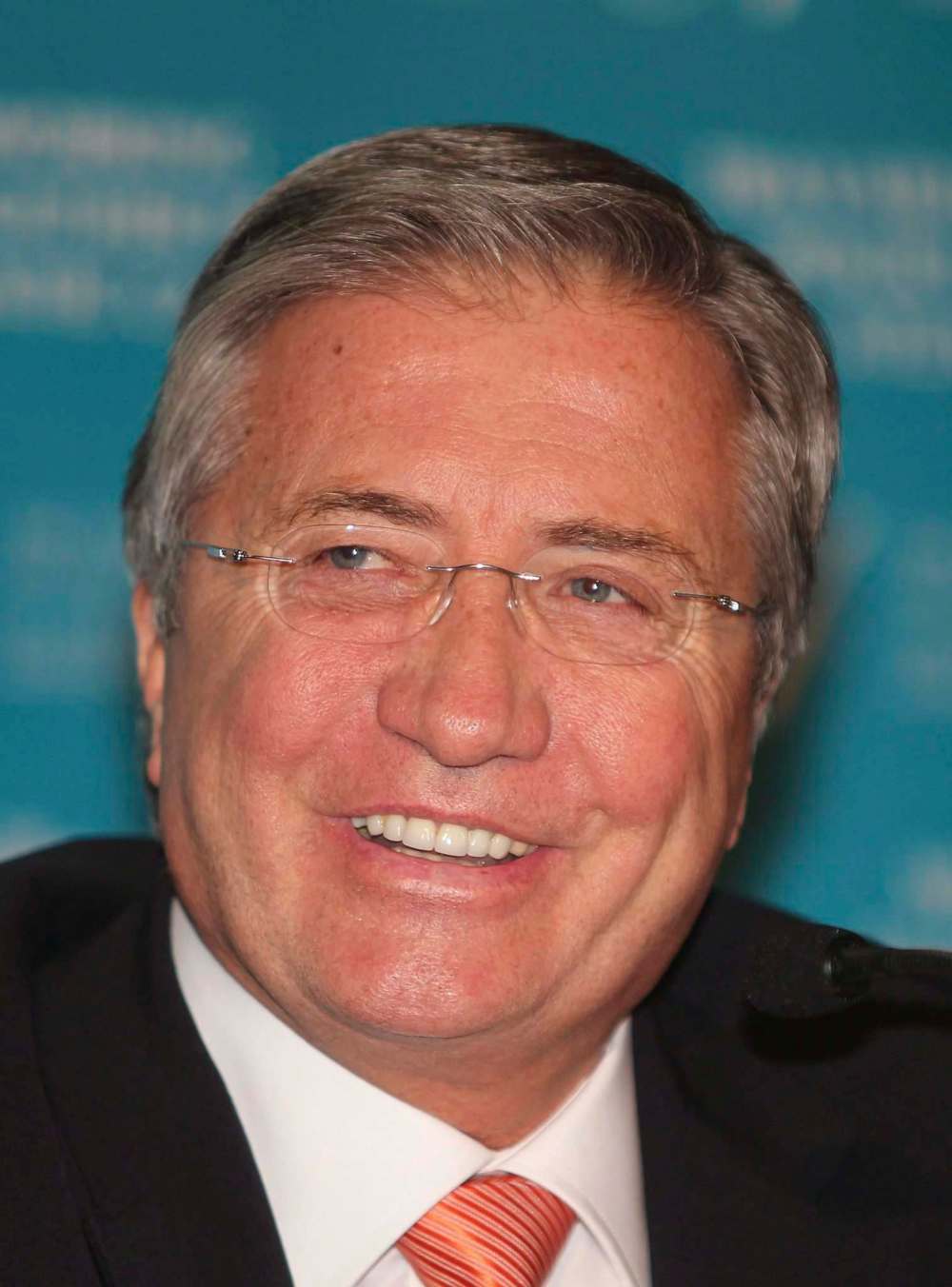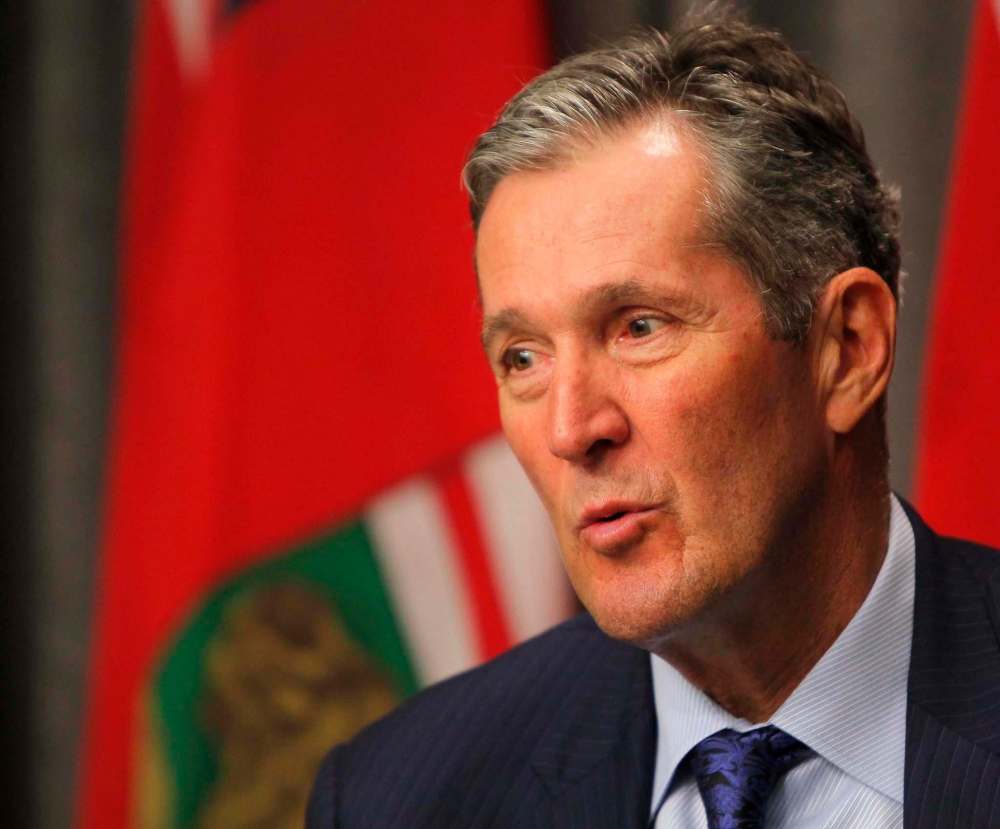Pallister could profit by following Williams’ example
Advertisement
Read this article for free:
or
Already have an account? Log in here »
To continue reading, please subscribe:
Monthly Digital Subscription
$0 for the first 4 weeks*
- Enjoy unlimited reading on winnipegfreepress.com
- Read the E-Edition, our digital replica newspaper
- Access News Break, our award-winning app
- Play interactive puzzles
*No charge for 4 weeks then price increases to the regular rate of $19.00 plus GST every four weeks. Offer available to new and qualified returning subscribers only. Cancel any time.
Monthly Digital Subscription
$4.75/week*
- Enjoy unlimited reading on winnipegfreepress.com
- Read the E-Edition, our digital replica newspaper
- Access News Break, our award-winning app
- Play interactive puzzles
*Billed as $19 plus GST every four weeks. Cancel any time.
To continue reading, please subscribe:
Add Free Press access to your Brandon Sun subscription for only an additional
$1 for the first 4 weeks*
*Your next subscription payment will increase by $1.00 and you will be charged $16.99 plus GST for four weeks. After four weeks, your payment will increase to $23.99 plus GST every four weeks.
Read unlimited articles for free today:
or
Already have an account? Log in here »
Hey there, time traveller!
This article was published 24/07/2017 (3054 days ago), so information in it may no longer be current.
If Premier Brian Pallister isn’t careful, he’s going to miss his Danny Williams moment.
Williams was the bombastic former premier of Newfoundland and Labrador. From 2004 to 2010, Williams forged a lasting national profile — quite an achievement for the premier of a small province — largely because of his appetite for tussling with and, ultimately, defeating the federal government.
That kind of experience could be instructive now for Pallister, a premier who has a similar appetite for tussling with Ottawa but who has, to date, not figured out how to gain the upper hand.

In many ways, Williams’ early years bear an eerie similarity to what Pallister is going through now.
After he was elected in 2004, Williams immediately slashed spending to deal with a deficit that had grown to more than $800 million. Just as Pallister is doing now, Williams delayed infrastructure projects, closed schools and hospitals, froze civil-servant pay and laid off another 4,000. The latter decision sparked a month-long strike by more than 20,000 civil servants that was only ended by back-to-work legislation.
And like Pallister, Williams’ austerity agenda steadily eroded the support for his government. A few months after pulling 60 per cent of the popular vote, polls showed the Williams’ government had only 41 per cent support and was back in a statistical dead-heat with the opposition Liberals.
The Williams’ government seemed destined for the political disaster until a dispute with the federal government intervened.
Then-prime minister Paul Martin locked horns with Williams on the renewal of the Atlantic Accord, a deal between the province and Ottawa on the management of off-shore oil and gas resources.
When he couldn’t get the terms he wanted, Williams decided to go to war. In December 2004, he took down all the Canadian flags from provincial government buildings. The dispute, which captured the attention of the nation, continued until February 2005, when Williams achieved a more favourable agreement and put the flags back up.
Polls in the immediate wake of the renewal of the Atlantic Accord showed support for Williams’ government had surged to more than 80 per cent, a level almost unheard of in Canadian politics, then or now. But that was not the end of Williams’ sparring with Ottawa.
In 2008, Williams battled then-prime minister Stephen Harper, accusing him of reneging on a pledge to exclude oil and gas revenues from calculation of equalization payments. To press his case, Williams eventually launched the Anything But Conservative campaign to coincide with the 2008 election, urging citizens of his province to vote against all Tory candidates. Ultimately, the federal Conservatives lost all three seats in Newfoundland and Labrador.
Williams would leave provincial politics just two years later as one of the most dynamic and popular premiers in any province, even though his legacy is not entirely positive. Spending cuts and rough play with public servants still rankle some — and he is largely blamed for squandering enormous oil and gas revenues. Still, Williams proved it is possible for the premier of a smaller province to prevail in a battle with Ottawa.
Williams’ legacy would appear, at first blush, to be instructive for Pallister, a leader who has shown a Danny-like appetite for conflict.
Pallister has refused to sign a health-funding deal he says is patently unfair to the provinces, has shunned Ottawa’s carbon tax plan and lashed out at Ottawa for its pot legalization timetable.
And then there is Churchill.
The private owner of the Hudson Bay Railway, Omnitrax, has refused to undertake repairs to the rail link between The Pas and Churchill, putting the residents of Manitoba’s northernmost town at risk of going without basic necessities — or having to pay exorbitant prices for them — throughout the winter.

Pallister wants Ottawa to dig into its pockets to reacquire the port from Omnitrax. Only then, Pallister has said, would he consider some sort of direct involvement in repairing the line. The silence from Ottawa is deafening and suggests that nobody in the federal government cares a whole lot about what he has to say.
For a leader who seems to embrace conflict, this is an incredibly passive response. Even Pallister’s pledge to spend $6 million to bring propane to heat Churchill homes was greeted as a too-little, too-late gesture.
If Pallister is going to spar with Ottawa, he ought to find ways of underlining his dissatisfaction with direct action.
Taking down the Canadian flags from provincial buildings in Manitoba is an option, but that alone may not be enough to sway things Pallister’s way.
Pallister needs to deliver a made-in-Manitoba plan to fix the rail line and nudge Omnitrax out of the equation and then use some carrot and some stick to get the federal government to help cover the costs.
Perhaps he can use Manitoba’s support for the health-care accord and carbon tax framework as bargaining chips to get support on Churchill.
Taking the lead on Churchill — and settling the health and carbon tax disputes — would also help distract from the severe austerity measures Pallister has invoked and perhaps reverse the recent, significant decline in public support for his government.
Pallister is increasingly being viewed as a bystander to the most pressing issues in his own province, a leader with a long list of grievances who is desperate to find someone else to lead on solutions. It’s an approach that does not look good on the Tory premier.
As he searches for solutions and weighs the political benefits and liabilities, it would be helpful if Manitoba’s premier asked himself one important question: what would Danny Williams do?
dan.lett@freepress.mb.ca

Dan Lett is a columnist for the Free Press, providing opinion and commentary on politics in Winnipeg and beyond. Born and raised in Toronto, Dan joined the Free Press in 1986. Read more about Dan.
Dan’s columns are built on facts and reactions, but offer his personal views through arguments and analysis. The Free Press’ editing team reviews Dan’s columns before they are posted online or published in print — part of the our tradition, since 1872, of producing reliable independent journalism. Read more about Free Press’s history and mandate, and learn how our newsroom operates.
Our newsroom depends on a growing audience of readers to power our journalism. If you are not a paid reader, please consider becoming a subscriber.
Our newsroom depends on its audience of readers to power our journalism. Thank you for your support.
History
Updated on Monday, July 24, 2017 6:51 AM CDT: Adds photos

